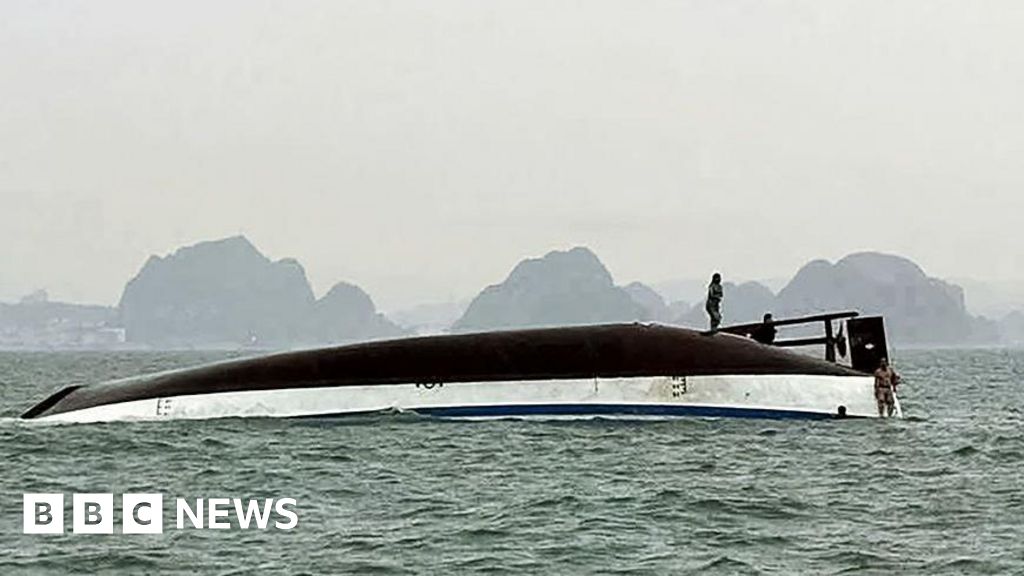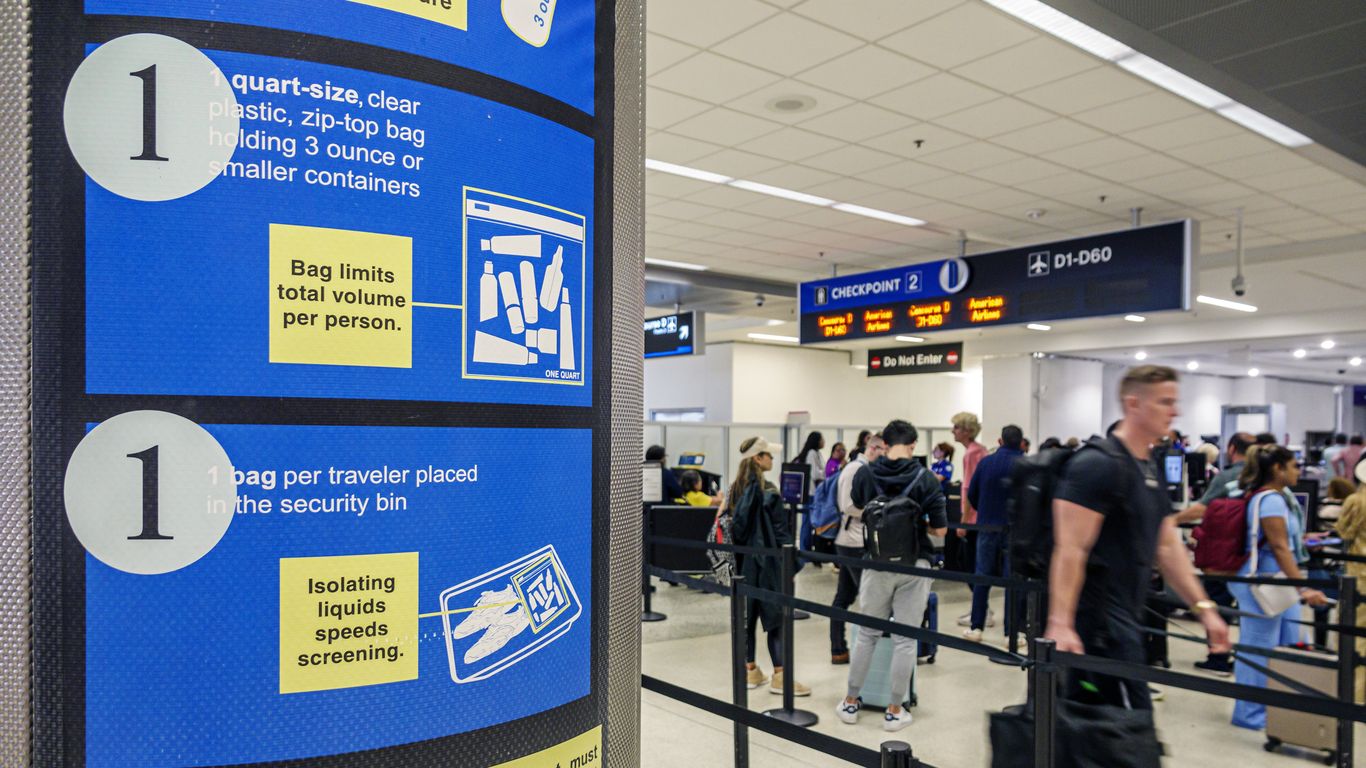Shark Attack Raises Safety Concerns for Tourists in the Bahamas

Introduction
A U.S. tourist was attacked by a shark while spearfishing in the Bahamas on Sunday, according to police. The incident occurred near Big Grand Cay on the island of Abaco. This terrifying event has raised concerns about the safety of tourists in the area, as well as the increasing number of shark attacks in recent years.
The Attack
The victim, a 32-year-old American, was spearfishing in shallow waters when he was suddenly attacked by a shark. According to local authorities, the man sustained severe injuries to his leg and was rushed to a nearby hospital. This is not the first time a tourist has been attacked by a shark in the Bahamas, as the country has seen a rise in shark-related incidents in recent years.
Impact and Safety Concerns
The incident has raised concerns about the safety of tourists in the Bahamas, as it is a popular destination for water activities such as spearfishing and snorkeling. Experts suggest that the increase in shark attacks may be due to human encroachment on their habitats and the decline of their natural prey. As such, it is important for visitors to be aware of their surroundings and follow safety precautions while engaging in water activities.
About the People Mentioned
American Tourist
**William Edward Phillips**, known professionally as **Tourist**, is an English electronic musician and songwriter born on February 12, 1987, in London and raised partly in Cornwall.[1][2][4][5] He began making music as a child, experimenting with piano, drums, early sequencers, and software like Cubasis and Reason on a family computer, finding solace in it amid personal challenges like his parents' divorce.[2][4] Tourist's breakthrough came in 2015 when he co-wrote Sam Smith's hit "Stay with Me" with James Napier, earning a **Grammy Award for Song of the Year**.[1][2][4] This success led to his solo career launch with the self-titled EP in 2012, followed by "Tonight" (2013) and "Patterns" (2014).[1] He signed with Method Records, run by Disclosure, and debuted his first full-length album, *U*, in 2016, featuring singles like "To Have You Back" and "Run," with live performances at Coachella, Glastonbury, and Sonar.[1][2] His discography includes five prior albums—*Everyday* and *Wild* (both 2019), *Inside Out* (2022), and *Memory Morning* (2024)—plus the 2025 release *Music is Invisible*, alongside EPs such as "Wash" (2017).[1] Notable tracks include "Waves," "Apollo," "Hearts," and "Emily," blending UK garage influences with emotional depth; he has remixed artists like Christine and the Queens, Wolf Alice, Chvrches, and Sophia Kourtesis.[1][4] Personal elements appear in his work, such as his daughter's heartbeat on *Wild*'s "Eternal."[4] Tourist remains active in electronic music, with his cerebral production style and live performances sustaining relevance into 2025 via recent albums and ongoing releases.[1][2] (298 words)
About the Organizations Mentioned
local authorities
Local authorities are local government bodies responsible for managing a wide range of public services and functions within defined geographic areas, such as counties, municipalities, or districts. Their core activities include overseeing roads, traffic, housing, planning, economic and community development, environmental protection, recreation, fire services, and maintaining electoral registers[1][2]. They operate as multi-purpose entities, balancing policy decisions made by elected councils with day-to-day executive functions managed by appointed chief executives and senior management teams[1]. The governance structure typically divides responsibilities into "reserved functions" for elected councillors—such as passing budgets and setting housing or environmental policies—and "executive functions" for the chief executive, who implements strategies and administers programs[1]. Local authorities often have sub-divisions like municipal or borough districts to decentralize decision-making further within their jurisdiction[1]. Historically, local authorities evolved as the first forms of government, predating state or federal entities in many regions, establishing the foundation for localized governance and problem-solving tailored to community needs[2]. Their role is essential in delivering fundamental life amenities such as water, sanitation, fire and police services, and education, with education often accounting for a significant portion of local spending[2]. Local authorities also contribute to regional coordination through bodies like regional assemblies that promote strategic spatial planning, economic development, and sustainable public service delivery[1]. While their specific powers and organization vary by country and legal framework, local authorities embody decentralization, enabling self-governance and responsiveness to local priorities[4][7]. In business and technology contexts, local authorities are increasingly leveraging digital tools for transparency, civic engagement, and efficient service delivery, reflecting their critical position at the intersection of governance, community welfare, and innovation[2]. Their ongoing evolution as dynamic multi-functional organizations shapes how communities adapt to economic, environmental, and social challenges in the 21st century.
World Health Organization
The World Health Organization (WHO) is a specialized agency of the United Nations, established in 1948, with a mandate to promote global health, coordinate international responses to public health threats, and set standards for health policies and interventions[2]. Headquartered in Geneva, Switzerland, WHO operates in over 150 countries, working with governments, NGOs, and other partners to advance health equity, strengthen health systems, and respond to health emergencies. ## What WHO Does WHO’s core activities include monitoring global health trends, setting international health standards, providing technical assistance to countries, and serving as a forum for scientific and policy discussions on health issues[2]. The organization publishes influential reports such as the annual **World Health Statistics**, which tracks progress toward Sustainable Development Goals (SDGs) and provides a global “health report card”[1][8]. WHO also maintains the Model List of Essential Medicines, guiding countries on which drugs are most critical for public health[7]. In addition, WHO leads global campaigns on issues ranging from infectious disease eradication to noncommunicable diseases (NCDs), maternal and child health, and health emergencies[2][6]. ## History and Key Achievements WHO’s history is marked by landmark achievements, including the eradication of smallpox, near-eradication of polio, and the development of an Ebola vaccine[2]. The organization played a pivotal role in responding to the COVID-19 pandemic, coordinating global research, vaccine distribution, and public health guidance. In May 2025, WHO member states adopted the world’s first **Pandemic Agreement**, a historic step to improve international coordination and equity in future health crises[4]. WHO also spearheads initiatives like the Triple Billion Targets (healthier lives, universal health coverage, and protection from health emergencies) and technical policy packages targeting tobacco, alcohol, salt, and trans fat reduction[1][2]. ## Current Status and Notable Aspects WHO is currently implementing its **Fou











